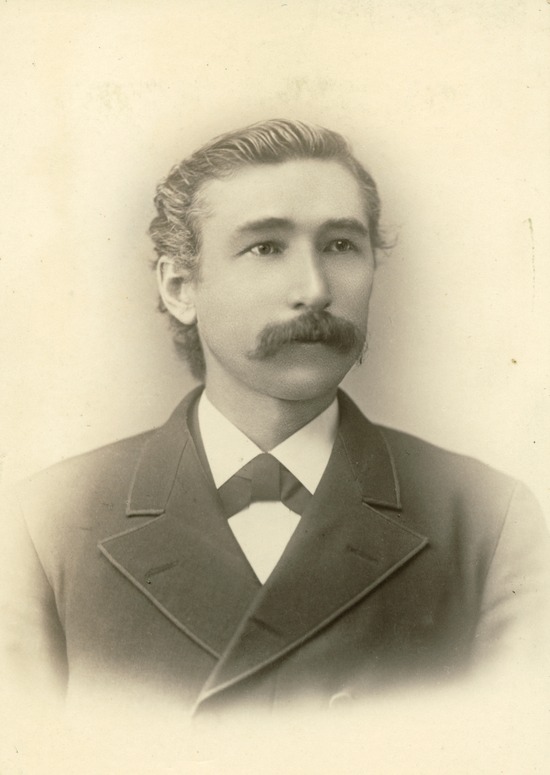Present truth is the principle that certain biblical truths are relevant to God’s people at specific times in history. God sends the Holy Spirit to reveal truths that help us better understand how to interpret and apply His Word in a present moment.
And though this concept isn’t solely Adventist, it does play a large role in the Seventh-day Adventist Church.
We might even say it’s essential to our DNA. But more on that later.
As you read, you can expect to learn the answers to these questions:
- What is present truth, and where does the idea come from?
- What are some examples of present truth in the Bible?
- Why is this concept so important to the Adventist Church?
Let’s get started with the essential question of this page.
Where does the concept of present truth come from?

Courtesy of the Ellen G. White Estate, Inc.
Though the phrase itself doesn’t appear in the wording of Scripture, this is a biblical belief that God reveals specific truths during a specific time period for a specific purpose.
The concept essentially acknowledges that circumstances change, and because of this change, some messages of truth from the Word of God may be more applicable or more useful at a given time.
Randy Roberts, an Adventist pastor and theologian, puts it this way:
“As the world changes and as time changes, God will send the Holy Spirit to us to help us understand how we live out the principles of the Bible. In that way, Scripture is both timeless and timely.”1
It is timeless because the Bible is full of truths that apply to us regardless of time, place, and culture. But it is timely in that it can speak directly to the circumstances of a specific time, place, and culture.
This doesn’t mean the truths of the Bible that made an impact in a certain context don’t apply to us today. Rather, they might apply to us in different ways.
It’s important to note that God’s Word doesn’t change.
Present truth isn’t saying that it does. In fact, the Bible tells us that God’s truth “endures to all generations” (Psalm 100:5, NKJV). The Bible has unchanging principles that apply to everybody.
The idea of present truth, then, is that God can give us new insight to help us better understand His Word and apply it to situations that might arise at a given time. But these “new truths” are always consistent with other truths in the Bible.
In this way, present truth teaches us how to live out the truth of the Bible in the here and now.
Ellen G. White, a pioneer of the Adventist Church and prolific author, touches on this point when she says,
“The present truth, which is a test to the people of this generation, was not a test to the people of generations far back.”2
And her husband, James White, also a leader in the Adventist Church, wrote:
“Present truth is present truth, and not future truth, and…the Word as a lamp shines brightly where we stand and not so plainly on the path in the distance.”3
We didn’t make this doctrine up. It comes from the Bible.
The verse that gives us the phrase “present truth” is found in 2 Peter:
“For this reason, I will not be negligent to remind you always of these things, though you know and are established in the present truth” (2 Peter 1:12, NKJV).
In this verse, Peter, who was nearing the end of his life, affirmed the members of the early church movement for being steadfast in the truth of that particular time.
But while the phrase “present truth” comes from this verse in the Bible, our understanding of it comes more from the way it is revealed throughout Scripture.
So, let’s head to the Bible to find some examples.
What are some examples of present truth in the Bible?
The Bible contains many examples of truths God gave to specific people for a specific time and place. We’ll talk about:
- Noah’s warning of the Flood
- Jonah’s message for Nineveh
- Jesus’ explanation of the law
- Paul’s message to the Jews and Gentiles
Noah’s warning of the Flood
The story of Noah and the Flood is a great example of how Adventists understand present truth.
God commanded Noah to build an ark because there was going to be a worldwide flood (Genesis 6:13). Noah listened to God’s message for him, built an ark, and he, his family, and the ark full of animals were saved (Genesis 7:22).
How is this an example of present truth?
Well, God’s message to us today is different from the one He gave to Noah.
God’s message to Noah was “I’m going to send a flood; build an ark.” But God’s message to us today is not “I’m going to send a flood; build an ark.”
The warning of the Flood was present truth for Noah and his family. But not for us.
Now, just because the warning of the Flood is no longer our present truth doesn’t mean it isn’t true.
We believe the Flood happened and Noah and his family were delivered. We can also take principles from this story and apply them to our lives: live a life committed to God, follow His instruction, and have faith in His plan.
We find a similar example of present truth in the story of Jonah.
Jonah’s message to Nineveh
Jonah’s prophetic message to Nineveh was that they would be destroyed in 40 days because of their wickedness (Jonah 3:4). The people heard that message and repented. And God spared them because of their change of heart (Jonah 3:5–10).
The present truth that prophesied the destruction of the people of Nineveh caused them to change their evil ways.
Ellen White cites this example specifically when talking about how important present truth is, both for the people of Nineveh and for us today:
“Now, suppose a certain people should say, ‘We have all the truth that our fathers had; we don’t want anymore,’ and the God of heaven should send them a message as He did to Nineveh. What would be the result? The same as would have resulted to the Ninevites if they had not repented. Sentence was pronounced upon them, but their repentance saved them. How thankful we should be that we have a God who will repent of the threatened evil, when the erring return to Him with true contrition of the soul.”4
Present truth can show us where we have gone wrong and urge us to take action. It is a doctrine that shows the grace, love, and salvation of our God.
Jesus’ explanation of the law
Present truth can also give us a fresh understanding of old information.
There are 613 laws in the Torah—the first five books of the Old Testament. These laws, given to the children of Israel after their exodus from slavery, were meant to guide many facets of their lives.
And they needed that kind of specificity: they were young in their spiritual journeys. They had been slaves for hundreds of years, and without concrete examples, they didn’t know how to govern themselves in a way that would honor God and honor each other.
Fast forward to Jesus’ ministry on this earth.
By this time, the Israelites had prioritized their ceremonial laws above their relationship with God. In upholding all these ceremonial laws, they had forgotten their purpose and, in turn, had broken the first of the Ten Commandments: “You shall have no other gods before me” (Exodus 20:3, ESV). They had made their traditions and ceremonies an idol.
So Jesus, the Son of God, came to clarify the laws they were so keen on keeping.
He said to the Jewish leaders:
“You shall love the Lord your God with all your heart, with all your soul, and with all your mind. This is the first and great commandment. And the second is like it: You shall love your neighbor as yourself. On these two commandments hang all the Law and the Prophets” (Matthew 22:37–40, NKJV).
Jesus gave them present truth to help them understand the spirit, or essence, of the laws they were keeping. His summary of the law—love God and love others—was meant to help the Israelites reframe—understand in a new way—what it means to worship and serve God.
In other words, Jesus gave them a new way to apply the Word of God in the here and now. He was expressing both the timelessness and timeliness of the law of God.
Paul’s message to the Jews and Gentiles
After the death and resurrection of Jesus, the gospel (literally, “good news”) spread to people in all the surrounding areas, Jews and Gentiles (non-Jews) alike.
But Jewish members of the early Christian church struggled to understand the gospel and once again upheld their traditions and ceremonies above it.
They began imposing these traditions on the non-Jewish members of the church too.
However, Paul had present truth to give to the early church. In his letter to the Galatians in the New Testament, he wrote:
“There is neither Jew nor Gentile, neither slave nor free, nor is there male and female, for you are all one in Christ Jesus” (Galatian 3:28, NKJV).
The gospel of Jesus Christ wasn’t meant for only one group of people. It was meant for all people.
Now that we’ve explored some biblical examples of present truth, let’s learn about its significance in Adventism.
Why is the principle of present truth important to the Adventist Church?
Present truth is an essential part of the Adventist Church because so many of our foundational doctrines—including the Sabbath, salvation by faith, Jesus’ role in the heavenly sanctuary, and the three angels’ messages—were discovered as God gave new revelations during sincere Bible study.
Because of present truth, Adventism is what it is today.
Present truth continues to be an important concept in the Adventist Church nearly 200 years later. Its importance can be boiled down to the following reasons. It…
- Keeps us from upholding human creeds
- Keeps us from religious fundamentalism
- Keeps us searching the Scriptures and dialoguing with each other
- Helps us understand the times we’re living in
It keeps us from upholding human creeds
Adventist pioneers valued present truth because it kept the church from upholding any sort of human creed in place of the Bible.
But to understand this better, we need a little bit of history.
When the Adventist Church was in its early years, one of the things that made it distinct from other religious movements of the day was its staunch opposition to creeds or “formal statements of doctrinal belief that presumably could never be altered.”5
James White said that “making a creed is setting the stakes, and barring up the way to all future advancement.”6
And John Loughborough, an early Adventist minister, strongly stated:
“The first step of apostasy is to get up a creed, telling us what we shall believe. The second is to make that creed a test of fellowship. The third is to try members by that creed. The fourth to denounce as heretics those who do not believe that creed. And, fifth, to commence persecution against such.”7
Opposing a strict, unmovable creed meant that the early Adventists could stay attuned to the voice of God and to truths He might reveal.
This is where present truth comes in.
The concept of present truth gave early Adventists the freedom to discover new things about what they believed. Truly, they wanted to be open to receiving further truth from God.
It keeps us from religious fundamentalism

Courtesy of the Ellen G. White Estate, Inc.
Religious fundamentalism, or an unmoving devotion to the foundational rules and traditions of a religion, is something that the early Adventist founders shied away from. The teaching of present truth reminded them—and us—that no matter how numerous or old our fundamental beliefs are, we must always be willing to receive truth from God.
One example of this occurred at the 1888 session of the General Conference of Seventh-day Adventists.
In short, this meeting helped shift the church away from an emphasis on the law and cherished tradition to an emphasis on salvation by faith in our Lord Jesus Christ. When we accept Him by faith, He gives us the power to live for Him.
This change in perspective didn’t come easily. But at a time when the church was in danger of becoming fundamentalist, God revealed the truth of salvation by faith to young reformers and Ellen White.
On this topic, she said:
“There is no excuse for anyone in taking the position that there is no more truth to be revealed and that all our expositions of Scripture are without an error. The fact that certain doctrines have been held as truth for many years by our people is not proof that our ideas are infallible. Age will not make error into truth, and truth can afford to be fair. No true doctrine will lose anything by close investigation.”8
When we are open to new perspectives the Bible might have for us, we stay flexible and guard ourselves against fundamentalism that could eventually drive us away from the Word of God.
It keeps us searching the Scriptures and dialoguing with one another
Present truth ensures that we don’t become stagnant when it comes to our understanding of the Bible.
We recognize that it’s a false security to think we have 100% of the truth God wants us to know.
Discussion, dialogue, and community are core values of the Adventist Church, and when we study the Scriptures together, we can discover God’s present truth for us together as well.
Again, to quote Ellen White on this topic:
“Whenever the people of God are growing in grace, they will be constantly obtaining a clearer understanding of His Word…. But as real spiritual life declines, it has ever been the tendency to cease to advance in knowledge of the truth. Men rest satisfied with the light already received from God’s Word, and discourage any further investigation of the Scriptures. They become conservative, and seek to avoid discussion…. Many now, as in ancient times…will hold to tradition, and worship they know not what…. When God’s people are at ease, and satisfied with their present enlightenment, we may be sure that He will not favor them.”9
The Adventist Church holds that it is essential for the spiritual health of the church to engage in Bible study together, to constantly advance in the truth that the Word of God has for us.
It helps us understand the times we’re living in
Many of Adventism’s key teachings have been shaped by the concept of present truth. It has helped us understand the importance of certain aspects of the Bible for our specific time.
We emphasize these present truths because we believe they are essential to the time we are living in now.
Some examples include the prophecies of Daniel and Revelation as well as the three angels’ messages in Revelation 14:6–12. We highlight these Bible truths because we believe that they prepare us for the soon Second Coming of Jesus! They describe both the present day and the near future.
Timely messages from a timeless God
As time passes and we get closer and closer to the end of the world and the Second Coming of the Messiah, we may receive more present truth from God. He may reveal things to us in the Scriptures that we didn’t see—or didn’t have to see—before.
But we can have faith that God will reveal truths to us when it is time for those truths to be revealed.
Through studying the Scriptures and discussing with each other, we can stay attuned to the guidance of the Holy Spirit and always be growing in our spiritual walk with our Savior.
If you want to learn more about having your own spiritual walk with Jesus,
- Roberts, Randy, “Why I Am an Adventist”, Praxis, Loma Linda Church, August 21, 2021. [↵]
- White, Ellen G., Testimonies for the Church, vol. 2 (Pacific Press, Mountain View, CA, 1868), p. 693. [↵]
- White, James, “A Sketch of the Rise and Progress of the Present Truth”, The Review and Herald, Dec. 31, 1857, p. 61. [↵]
- White, Ellen G., The Review and Herald, June 29, 1886. [↵]
- Knight, George, A Search for Identity: The Development of Seventh-day Adventist Beliefs, p. 21. [↵]
- White, James, The Review and Herald, October 8, 1861. [↵]
- Knight, George, A Search for Identity: The Development of Seventh-day Adventist Beliefs, p. 22. [↵]
- White, Ellen G., The Review and Herald, December 20, 1892. [↵]
- White, Ellen G., Testimonies for the Church, vol. 5 (Pacific Press, Mountain View, CA, 1882), pp. 706–707. [↵]
Related Articles
More Answers
Do Seventh-day Adventists Celebrate Holidays?
Wondering whether your Seventh-day Adventist classmate or coworker keeps the same holidays you do? Perhaps you want to include them in some festivities, but you also want to make sure you respect their beliefs.
What Is an Adventist Book Center (ABC)?
When you walk into any one of the many Adventist Book Center (ABC) locations, chances are you’ll be greeted by pleasant gospel music in the background, friendly employees, and row after row of Christian books, movies, Bibles, study guides, kids’ games, and more.
A Look at Adventist Colleges and Universities
On the outside, Seventh-day Adventist universities may not look much different than other college campuses. But the real differences are beneath the surface.
What Are Pathfinder and Adventurer Clubs?
What Are Pathfinder and Adventurer Clubs?Like the boy or girl scouts, Pathfinders and Adventurers learn about nature and life skills. But what makes these clubs special is their purpose to bring young people closer to Jesus. If you’ve wondered about Pathfinder or...
What Is a Seventh-day Adventist Camp Meeting?
Although camp meetings didn’t begin with the Seventh-day Adventist Church, they’re very common to Adventists.
Do Seventh-day Adventists Believe Only They Will Go to Heaven?
No, Adventists definitely don’t believe they’re the only ones that will go to heaven. As a matter of fact, we don’t believe admittance into heaven is ever based on which church or denomination we belong to. People all over the world from different Christian denominations, religions, and walks of life will be welcomed by Jesus Christ.
How Adventists Handle Death and Funerals
Most Seventh-day Adventist funeral services are similar to those of other Protestant denominations, such as Methodists, Baptists, or Presbyterians, but you might find a few differences or unique nuances.
Does the Adventist Church Have Youth Ministry Programs?
Does the Adventist Church Have Youth Ministry Programs?The Seventh-day Adventist Church has been organizing and operating youth ministry programs since 1879. In our opinion, youth ministry is one of the most important ministries a church can have. Being a tween or a...
How does one become a Seventh-day Adventist?
To be a Seventh-day Adventist Christian means to accept Jesus Christ as Lord and Savior. This means to recognize that Jesus alone can save you from sin and death (Savior) and to give Him full authority over your life (Lord and Master).
What Are Adventist Evangelistic Meetings?
The Seventh-day Adventist Church puts a huge emphasis on sharing the gospel through evangelism, or sharing the gospel through preaching, teaching, and testimony. One of the ways we accomplish this is by organizing public events called evangelistic meetings.
What Do Adventists Offer for Young Adults?
What Do Adventists Offer for Young Adults?In recent years, the age group often classified as “young adults” has been trickier to engage. It’s been a significant concern for Christian churches around the world. Though interestingly enough, similar observations...
Does the Seventh-day Adventist Church Believe in Paying Tithe?
Seventh-day Adventists believe in paying tithe and offerings based on the biblical command and our commitment to being wise stewards of God’s resources. These donations help fund the mission of the Adventist Church by supporting pastors, missionaries, church expenses, and evangelistic projects, among other things.
The Leadership Structure of the Seventh-day Adventist Church
The Leadership Structure of the Seventh-day Adventist ChurchThe Seventh-day Adventist Church has a representative form of structure that connects its 90,000-plus congregations across the globe and gives its members a part in decision-making. Though the Church was...
Seventh-day Adventist World Population and Demographics
Did you know that the Seventh-day Adventist Church has more churches around the world than all the Pizza Hut, McDonald’s, and Subway restaurants combined?
Do I Need to be an Adventist to be Saved?
The answer to this question is simply, “no.”
All about Adventist Elementary Schools
The Seventh-day Adventist Church operates the largest Protestant education system in the world. A big part of this system is our K-8 elementary schools, or primary schools, as they’re known in other parts of the world.
Everything You Need to Know About Sabbath School
Sabbath School is the Bible study component of the church program at most Seventh-day Adventist Churches. It’s a time of Bible study on a specific topic or lesson. Instead of listening to a preacher, people interact with one another, making it a great opportunity for building friendships.
What Is Vespers?
Friday rolls around, and you’re spending time with your friends or relatives when they mention they’re going to vespers this evening.
Do Seventh-day Adventists Believe in Medical Care?
Adventists talk a lot about health principles and disease prevention. But how do we handle sickness and medical needs when they inevitably come along?
Do You Have to Be Vegetarian to Be Adventist?
Of course not. Membership in the Seventh-day Adventist Church has never included any dietary requirements.
How Do Adventists Do Baby Dedications?
For Christians, dedication ceremonies for babies are a special and memorable time for parents and the church. They often happen during a congregation’s main worship service when parents present their child before God and the church community, similar to how families did in the Bible.
What to Expect When You Go to an Adventist Church
If you’re attending an Adventist church for the first time, you may wonder what it’s really like. While each Adventist church is unique in its collective personality and local culture, Adventist church services are generally similar to most other Protestant Christian church services.
Everything You Need to Know About Sabbath Meals
For Seventh-day Adventists, sharing a Sabbath meal with friends and family is one of the most special and memorable parts of the Sabbath.
Why do Adventists Emphasize Religious Liberty?
Adventists see religious liberty as an essential human right. After all, God endowed humanity with freedom of choice from the very beginning. So we believe it’s best for governments to also support their citizens’ rights to worship based on their convictions.
All About Seventh-day Adventist Colporteurs
The Seventh-day Adventist Church uses a variety of methods to spread the hope of the gospel to the world. One of these ways is through colporteuring, also called “canvassing” or “literature evangelism.”
The Benefits of A Seventh-day Adventist Academy
Adventist academies are high schools (grades 9-12) that are owned and operated by the Seventh-day Adventist Church.
Who Are Adventists
The Seventh-day Adventist Church—“Adventists” for short—is a Christian denomination of ordinary people who seek to follow Jesus and live out His mission in this world. Established in 1863, we hold to the Protestant principle of sola scriptura, which means the Bible guides everything we do.
Evangelism
Evangelism is simply sharing the truths of the Bible with someone else. And Adventists are all into it.
Adventist Pastors
What is the role of a pastor in the Adventist Church?
Didn’t find your answer? Ask us!
We understand your concern of having questions but not knowing who to ask—we’ve felt it ourselves. When you’re ready to learn more about Adventists, send us a question! We know a thing or two about Adventists.

































